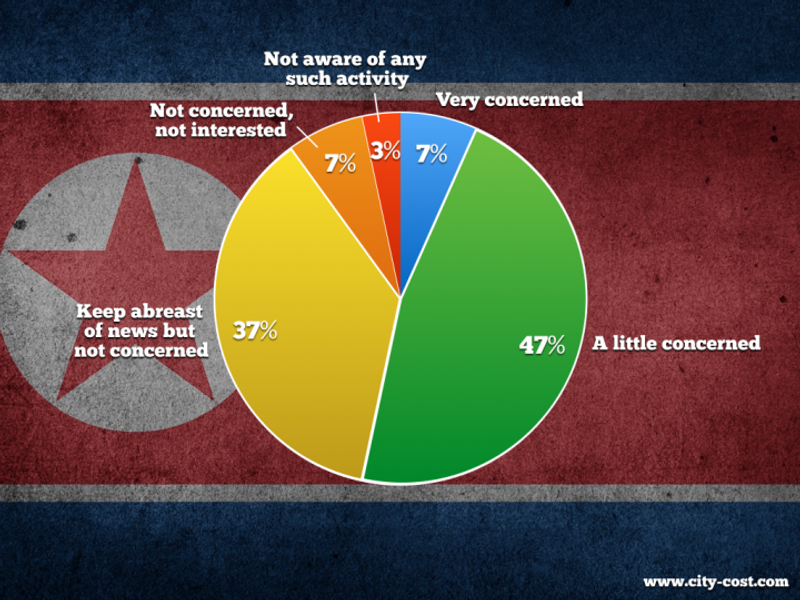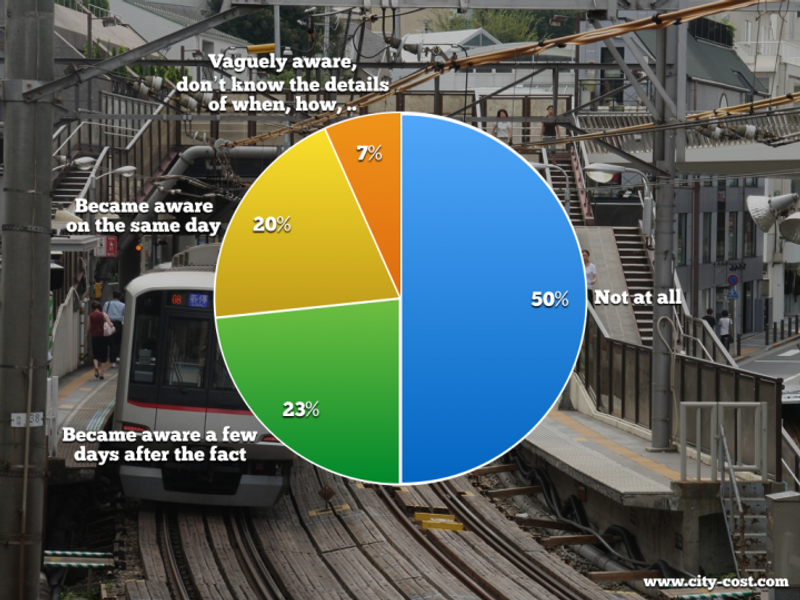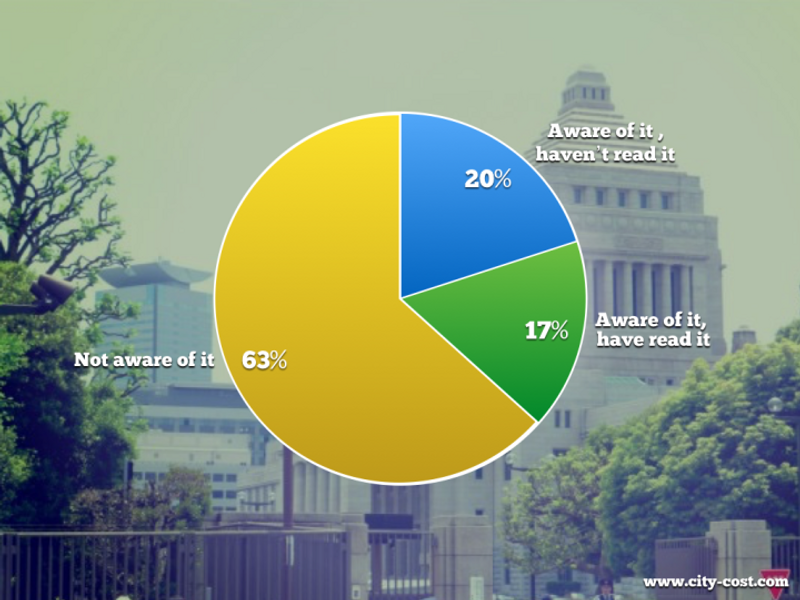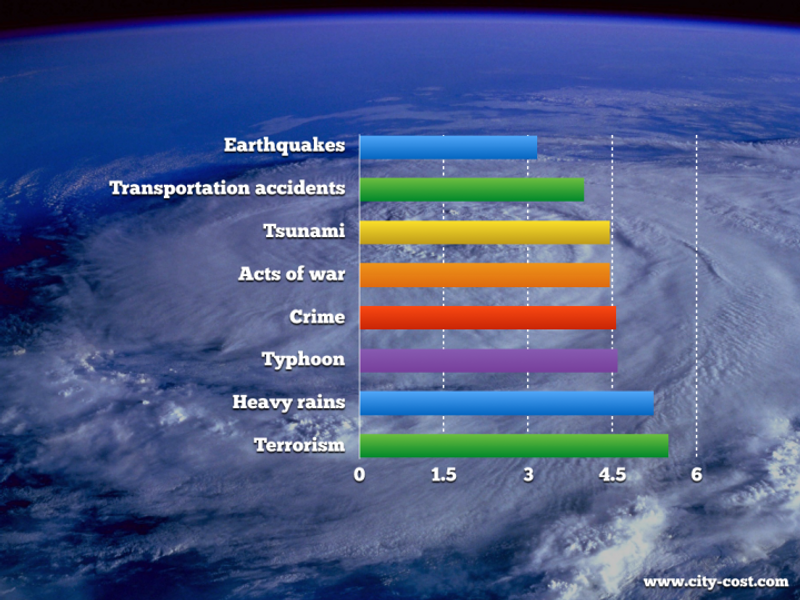Jun 8, 2017
Safety and security in Japan: Awareness and concerns among expats
Rightly or wrongly, it would perhaps be fair to say that Japan has a greater reputation for safety and security than most nations. Foreigners in Japan have long remarked on the sense of freedom they feel when exploring Japan’s urban areas where the threat of crime, at any level, seems further away when compared to urban areas back home. Indeed, recent reports of police in Japan having spare time on their hands in the face of decreasing crime rates add further credence to these claims.
Where Japan would seem to fare less well, is in regards to natural disasters. The Great East Japan Earthquake and Tsunami in 2011 claimed over 18,000 lives and served as a devastating eye-opener to a new generation of foreigners in Japan as to the ever present threat of earthquakes in the region. Subsequent earthquakes in Kumamoto, 2016, claimed more than 200 lives.
In April of this year articles circulated about a set of directives issued by the Japanese government which, for the first time, talked about what to do in the event of a ballistic missile attack. The guide is entitled "Protecting Ourselves against Armed Attacks and Terrorism". While it was not made explicit at any point (not that we are aware of) the reports of these directives came at a time of increasingly aggressive (or defensive) behaviour from North Korea, with the country having conducted a number of missile tests in recent weeks, as a U.S. led alliance steps up pressure on supreme leader (although not head of state) Kim Jong-un. In late April, Tokyo Metro suspended train services in the capital based on media reports of a ballistic missile test by North Korea.
While nations in the West continue to suffer from terrorists attacks, Japan, thus far, seems to have remained free from any significant threat, at least on home soil. Some commentators put this down to Japan’s tough policies on immigration and asylum seeking. However, these same policies divide opinion - where some see them as safeguarding the country, for others they are inhumane and reveal a lack of tolerance.
Japan’s ageing society has seen a spate of car accidents in recent years involving the elderly behind the wheel. Sometimes down to drivers mixing up accelerator and brake pedals, some of the accidents have resulted in deaths, becoming high-profile stories in the media. As a result, local governments have been offering incentives to elderly drivers to hand over their licenses. These have included reduced taxi fares and even discounts for funeral homes.
It’s against this background that we asked City-Cost readers and bloggers about their concerns about, awareness of, and preparation for, safety and security issues in Japan. We take a look at some of the responses below.
To what extent are you concerned about what you hear / read in regards to missile activity in North Korea?

Reports of missile launches coming out of North Korea seem to be increasing. April saw a flurry of articles published after it was revealed in a Q&A document released on the Japanese government's Cabinet Secretariat CivilProtection Portal Site that it would take approximately 10 minutes for a missile to reach mainland Japan from North Korea. You can read the document here (in Japanese)
Were you aware of reports that recently Tokyo Metro briefly halted its train lines due to a (failed) ballistic missile test carried out by North Korea?

According to reports, Tokyo Metro shut down all lines of the morning of April 29 after receiving warning of a missile launch from North Korea. Some 13,000 passengers were affected. The services were suspended at 6:07 and resumed at 6:17. In early May, it media announced that around 90 percent of Japan’s major train operators would be prepared to follow suit should the government issue appropriate warning.
Are you aware of and have you read the guide "Protecting Ourselves against Armed Attacks and Terrorism" published by the Japanese government's Cabinet Secretariat?

You can read the the document here. While reports expressed a certain degree of surprise at the document, scrolling down to the bottom will reveal that it was last updated on July 31, 2014.
Which of the following are you most concerned about in Japan?
Responses reveal a fairly even sliding scale of concern, although earthquakes do seem to be clear at the top. That ‘Acts of war’ should be seen as a greater concern in Japan than ‘Crime’ further adds to Japan’s reputation, on the part of foreigners in Japan at least, as being a pretty safe country in this regard. Outside of Okinawa and Kyushu, ‘Typhoon’ in Japan rarely result in more than people being late to work. Heavy rains in Japan have been known to cause serious flooding, burst river banks and landslide. High profile cases in recent years include landslides in Hiroshima, 2014 that took over 30 lives, and in 2015 flooding in the city of Joso in Ibaraki Prefecture resulted in some 90,000 residents having to abandon their homes.
On a scale of 1 - 10, to what extent do you feel information regarding safety and security in Japan is made available and accessible to you?
In this question, a score of 10 indicated complete availability / accessibility. Only 3% of respondents gave a score of 10. A large number of responses were in the 6 to 9 range. The lowest score given was 3 (13%). The average score came out as 6.6 out of 10.
In the case of large earthquakes and tsunami in Japan, one only needs to switch on the TV to reveal channels framed by scrolling statistics and flashing maps. General awareness among foreigners in Japan of such large-scale disasters is perhaps not lacking. Where problems might arise though, is in the finer details of these situations and what kind of immediate action, if any, is required. Here, it's easy to feel completely in the dark as to what should be done.
We can see with responses to the question regarding the guide "Protecting Ourselves against Armed Attacks and Terrorism", by far, most of us were not aware that this guide even existed. This would perhaps suggest a gap that needs to be filled in terms of making this kind of information available, and more importantly, creating a better awareness that such materials are available.
In the event of an emergency / disaster situation in Japan, how are you typically informed about it? Select as many as apply.
| Word-of-mouth | 25% |
| TV | 25% |
| Social networking sites | 24% |
| Government / agency homepage | 13% |
| Typically don't stay informed | 8% |
| Other | 4% |
This was a multiple choice question where all options could be selected. The percentages in the table represent the number of times each option was selected out of the total number of selections over all options.
Responses for 'Other' included local public announcements, email systems at work / school, mobile applications, and Japanese partners.
To what extent are you satisfied with the broadcasting or relaying of emergency / disaster warnings in Japan?
In this question a score of 10 indicates total satisfaction with the relaying of emergency / disaster warnings in Japan. The average score came out at 8.3 out of 10 for this with 33% of responses given as 9. 3% of responses were 1.
This brings us back to the point raised in relation to availability and accessibility of safety and security information in Japan. There are plenty enough tannoy systems, alarms, beeps, sirens, and startling smartphone noises to make us aware that something is up. Quite what one is supposed to do in response to them, or to what they are referring, might be a different issue altogether.
If you have any comments or concerns to raise about safety and security in Japan, we want to hear from you. Share them in the comments below.
See us on ...
Twitter: @City_Cost_Japan
Facebook: @citycostjapan




2 Comments
Jazzy06
on Jun 8
Did you already experienced disaster?
KevinC
on Jun 9
@Jazzy06 I was here when the 311 earthquake happened, I live in Tokyo so the only problem was power shortage.